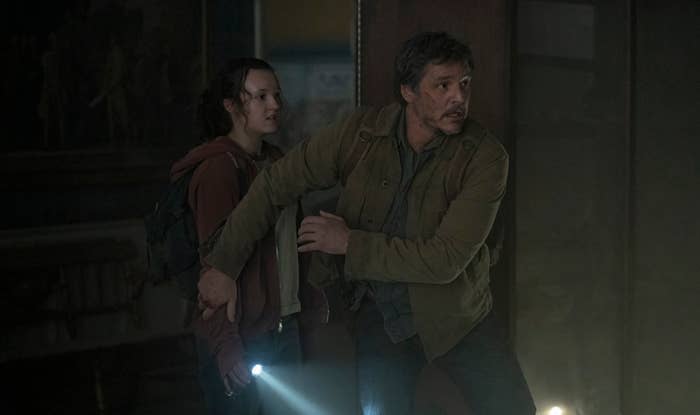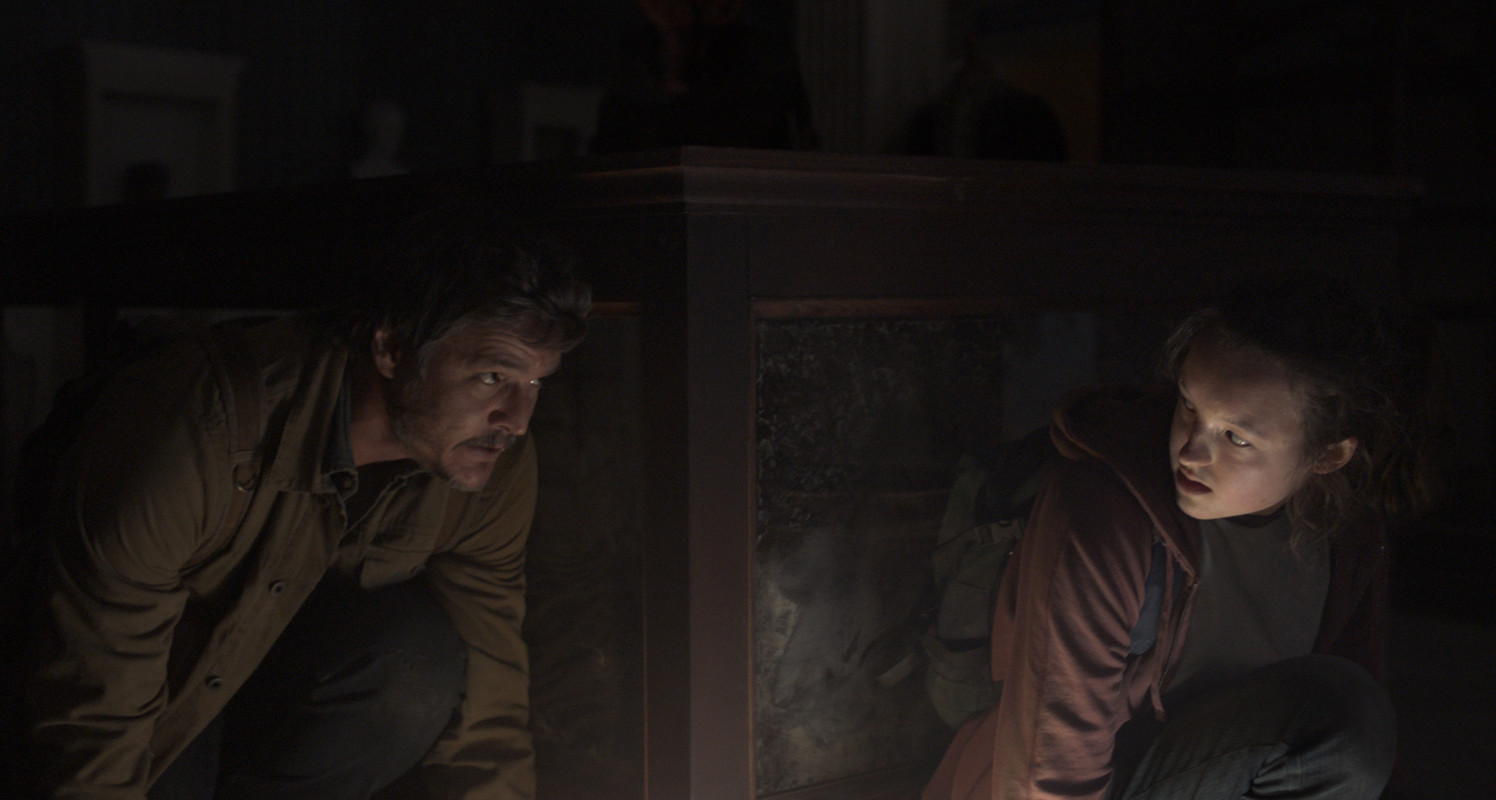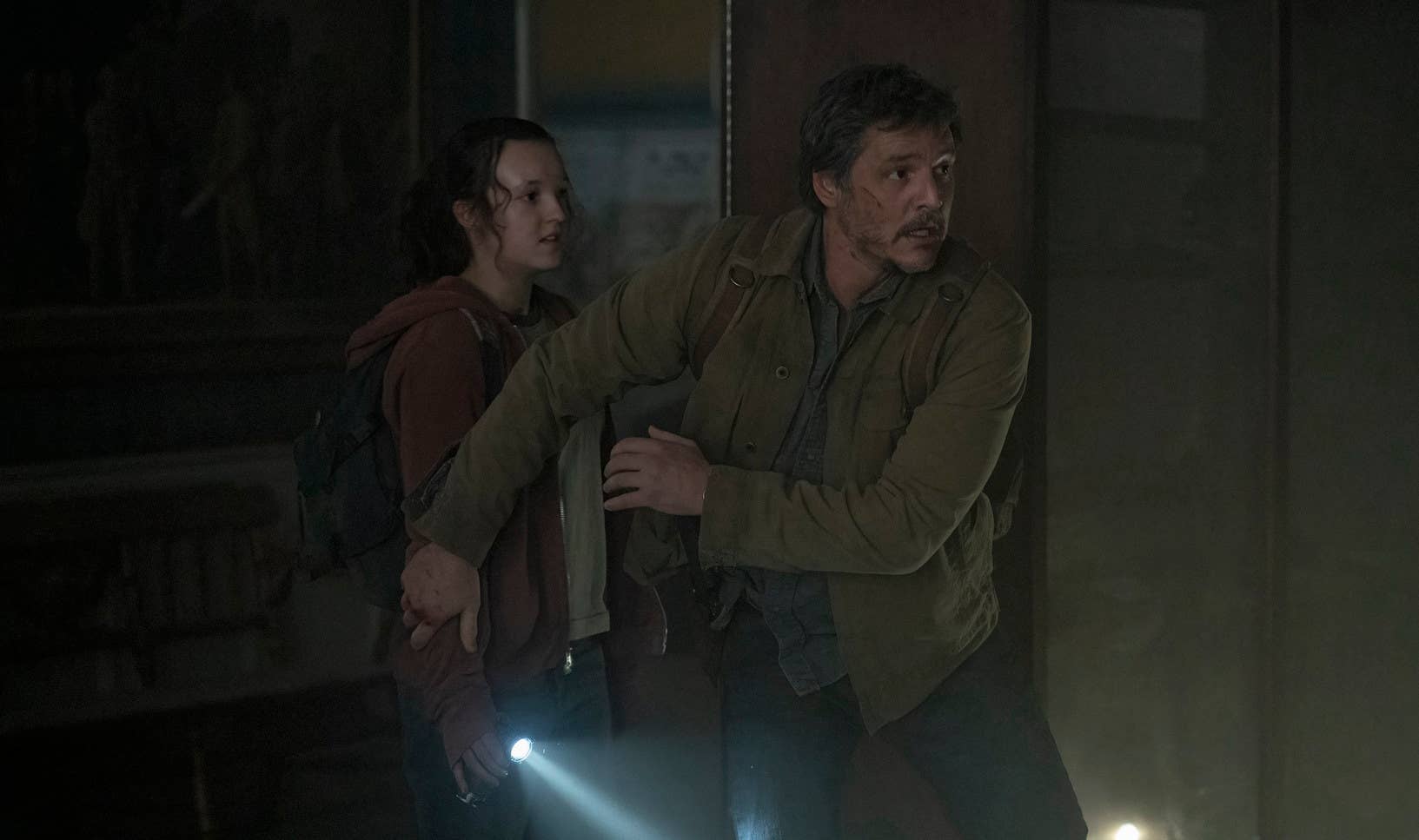
From its opening moments, The Last of Us seems engineered to defy preconceptions. HBO’s television adaptation of the hit PlayStation and Naughty Dog post-apocalyptic video game franchise doesn’t open with the game’s thunderous prologue but with a bold zag. It’s 1968 and a Johnny Carson–like host is talking with two panelists about the dangers of a global pandemic—as if to directly acknowledge the 50,000-pound elephant lingering in all virus-centered media post-2020.
The host laughs off the suggested notion of the bolder panelist before asking the otherwise quiet participant about his concerns. He replies with an answer that draws skeptical guffaws from the audience: “Fungi.” In a tense exposition, the scientist states in stark detail how the spores could alter the entire human mind if they evolved to a certain point. The host terrifyingly asks, “If that happens?” The scientist’s pragmatic response sends chills: “We lose.”
Loss is at the heart of The Last of Us. Set in what remains of the U.S. after a parasitic Cordyceps fungus does indeed infect civilization to horrific results, the television adaptation of the action-adventure-horror video game follows the same overarching plot as the game. A resentful smuggler Joel (Pedro Pascal) escorts the 14-year-old Ellie (Bella Ramsey, who played young spitfire Lyanna Mormont in later seasons of Game of Thrones) across the country on a secret, dangerous mission that may hold the key to finding a cure.
The game garnered near-universal praise for blurring the lines between cinematic and interactive storytelling. It’s a deathly serious title—with stakes that feel adult, weighty, human, and worthy of inclusion alongside prestige dramas you’d see on networks like HBO. While the “curse” of the bad video game adaptation is long over, with the successes of projects like Sonic the Hedgehog, Castlevania, The Witcher, and Arcane, The Last of Us carries a certain gravitas. As such, any translation of the game to the screen brings expectations and challenges.
View this video on YouTube
Let’s cut to the chase: HBO’s The Last of Us, helmed by game creator Neil Druckmann and Chernobyl’s Craig Mazin, is a triumph. Across the first season’s nine episodes, all of which HBO provided for review, Druckmann and Mazin’s approach to adaptation, storytelling, production design, performance, and direction is masterful, always prioritizing the cinematic presentation found at the game’s core. Fans of the genre will recognize the overarching path at its core—The Road–like odyssey across America—but the journey will take a few twists and turns, enriching and improving the story while helping it transcend its storied trappings. Some of the decisions are minor (the aforementioned talk show opening, for example), while others are major and better left unmentioned for viewers to discover through the first season. My quibbles are few; I found pacing to be a slight issue in some episodes, but often it’s due to individual storytelling beats that strengthen the overarching narrative, even if their mechanics aren’t as tidy as I’d prefer.
I’ve not played the games, deciding to see how the adaptation would fare without having the source material to influence me. Curiosity still lingers, and I often sought YouTube clips of big emotional beats from the game to see how they compared to the show. Caveats aside—I’m cherry-picking individual beats and not living the whole experience of the 10-hour-plus video game—the changes Druckmann and Mazin implement help expand the world in fascinating ways without compromising the core of Joel and Ellie’s story. To wit: An early season installment pivots away from the leads for a one-off featuring career-best performances from Nick Offerman and Murray Bartlett (The White Lotus).
The episode, written by Mazin and directed by BAFTA award-winning director Peter Hoar, is a master class in economical storytelling that will make you fall in love and break your heart—all in an hour. Hoar and Mazin’s tale is a micro-distillation of the show’s macro themes of love and loss, hope in the darkness, and human connection in utterly dire circumstances, rendered by empathic and superlative work from Offerman and Bartlett. There are further deviations like this throughout the series, leveraging strong work from beloved performers like Merle Dandridge (reprising her role as Marlene from the game), Gabriel Luna, Anna Torv, Storm Reid, and Melanie Lynskey.




